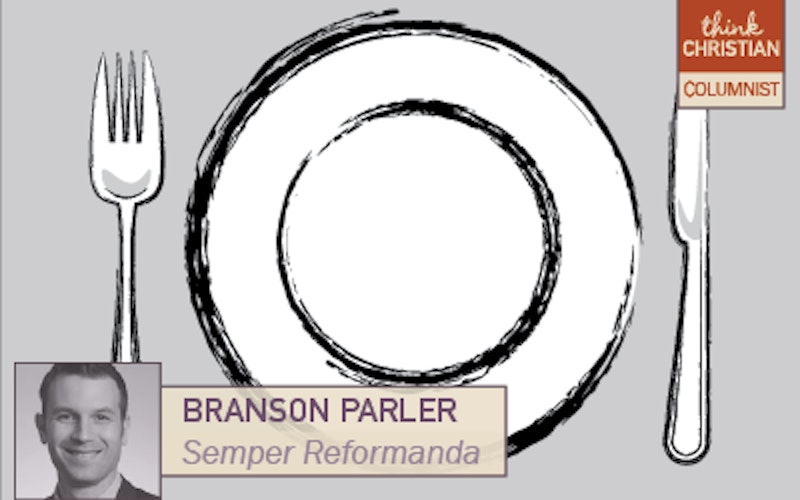
Culture At Large
Jim Gaffigan and the food purity movement
Jim Gaffigan is one of my favorite comedians. He jokes about kids, being a dad and liking food too much. I can relate. His book Dad is Fatspent 17 weeks on the New York Times bestseller list. Both his Comedy Central special, Obsessed, and book, Food: A Love Story, revolve mostly around food. Given Gaffigan’s success in making food a key theme, I think it’s worth asking why his comedy works so well (especially his focus on food). Part of it is simply his quirky sense of humor and delivery, but I also think it has something to do with the relatively recent emphasis on food ethics in American culture.
Mary Eberstadt has argued that our culture is experiencing a “transvaluation of values,” where food is the new sex. She argues that until fairly recently, most Westerners thought that sex had a universal and rigid moral code, whereas our eating was morally neutral and based on personal preference. For many, those things have flipped. As Eberstadt puts it, “The all-you-can-eat buffet is stigmatized; the sexual smorgasbord is not.”
I think this partly explains Gaffigan’s success. His jokes about food transgress and play with the boundaries and social stigmas around food ethics. For example, one punch line from Gaffigan’s earlier bit on McDonald’s perfectly illustrates Eberstadt’s thesis: going to McDonald’s to meet a male prostitute is less culturally shameful than eating at McDonald’s. Other examples include his bits on kale and vegetarianism. Why do these elicit such laughter from the audience? Because there are so many people whose sense of moral superiority depends primarily on what they eat or don’t eat, a cultural shift that is still fairly recent. Gaffigan’s humor thus pokes fun at what Jamie Smith calls “justice chic,” a kind of posturing around issues like food ethics that is less about doing the right thing and more about making sure everyone else knows how morally upright I am. Consider it a food purity movement.
Our goal should not be to let everyone know how morally superior we think we are.
I want to be clear: Christians ought to care about food ethics (if you haven’t read Wendell Berry, do so). But Christians need to avoid getting caught up in the food purity movement for two reasons. First, many issues of food ethics are systemic, economic and political, not merely individual choices, as The Onion deftly points out. This means that focusing solely on individual choice doesn’t capture the complexity of ethical eating. Furthermore, Berry often notes that although there may be political or economic steps to take, there are no simple, large-scale, top-down solutions to issues of food ethics. This means that real change will be incremental and often difficult.
Long, slow change (or none at all) leads to the second reason we need to be on guard against “food justice chic.” Smith points out that enlightenment on issues like food ethics can quickly turn to resentment toward those who either can’t or don’t immediately change. We like the moral superiority that comes from our organic, Whole Foods, local-eating way of life (at least until Whole Foods sells rabbit meat). But when others don’t get on board as quickly as we’d like - or at all - our “philanthropy becomes misanthropy,” Smith warns. We need to avoid this kind of pride in all matters, including food ethics.
In a holistic theology of the body, both sexual ethics and food ethics have their proper place. The disarming humor of Jim Gaffigan reminds us that our goal should not be to let everyone know how morally superior we think we are. Rather, the goal is to live a life of discipleship: to eat, drink and do whatever we do to the glory of God.
Topics: Culture At Large, Arts & Leisure, Entertainment, News & Politics, Social Trends, Justice